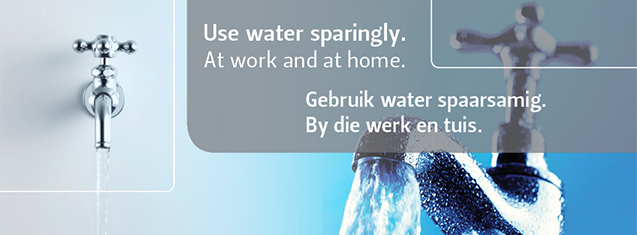Latest News Archive
Please select Category, Year, and then Month to display items
05 June 2018
Photo Supplied
 Archaeological excavations in the Wonderwerk Cave, north of Kuruman in the Northern Cape.
Archaeological excavations in the Wonderwerk Cave, north of Kuruman in the Northern Cape.
Research fellow Dr Lloyd Rossouw from the Department of Plant Sciences at the University of the Free State (UFS) recently published an article in the Nature Ecology and Evolution journal with Dr Michaela Ecker from the University of Toronto as lead author, and Dr James Brink, research fellow at the UFS Centre for Environmental Management. The findings described in “The palaeoecological context of the Oldowan-Acheulean in southern Africa” provides the first extensive paleoenvironmental sequence for the interior of southern Africa by applying a combination of methods for environmental reconstruction at Wonderwerk Cave, which have yielded multiple evidence of early human occupation dating back almost two million years ago.
Where water once was
The Wonderwerk Cave is found north of the Kuruman hills (situated in Northern Cape) a 140m long tube with a low ceiling. The surroundings are harsh. Semi-arid conditions allow for the survival of only hardy bushes, trees, and grasses. But during the Early Pleistocene, stepping out of the Wonderwerk Cave you would have been greeted by a completely different site, the researchers found. Using carbon and oxygen stable isotope analysis on the teeth of herbivores (Dr Ecker), fossil faunal abundance (Dr Brink), as well as the analysis of microscopic plant silica remains (phytoliths) excavated from fossil soils inside the cave (Dr Rossouw), the results show that ancient environments in the central interior of southern Africa were significantly wetter and housed a plant community unlike any other in the modern African savanna.
What difference does it make?
While East African research shows increasing aridity and the spread of summer-rainfall grasslands more than a million years ago, the results from this study indicate an interesting twist. During the same period, shifts in rainfall seasonality allowed for alternating summer and winter-rainfall grass occurrences coupled with prolonged wetlands, that remained major components of Early Pleistocene (more or less the period between one and two million years ago) environments in the central interior of southern Africa. That means our human ancestors were also living and evolving in environments other than the generally accepted open, arid grassland model.
Water use on campus
2015-12-14

Report water wastage on the campuses.
High temperatures and the fact that no rain was falling, puts pressure on the existing water supply. The Free State is one of the most arid areas in the country, and the province was also declared a drought area by the government.
It is therefore very important that the UFS community will use water sparingly – both where you live and in the workplace.
Report water wastage on the campuses by sending an email to news@ufs.ac.za or phone 051 401 3422.
Tips to use water sparingly in the workplace:
- Set up an inventory regarding water use and identifiable water management goals in your department. Control this to indicate progress.
- Keep a bottle of tap water in the fridge to avoid running the tap until the water is cold.
- Fill the kettle with water according to your needs.
- Sweep paving with a broom instead of washing it with water.
- Apply mulch to your garden, as it can reduce water use by up to 70%.
- Don’t rinse glasses and other dishes under running water. Plug the sink and reuse the water in the garden.
- Where possible, recycle water. Support projects making use of recycled water.
- When waiting for hot water to come out of the tap, place a bucket under the tap so that the cold water can be used later.
- Don’t let water run wild. Make sure all taps in the kitchen or bathroom are closed when leaving the office/residence.
Tips to use water sparingly at home:
- Showering can use up to 20 litres of water per minute. Take short showers, less than 5 minutes.
- Turn the tap off between washing your face, brushing your teeth or shaving
- Ensure that you have a full load of washing when using the washing machine.
Source: water tips: Rand Water, Bloem Water.